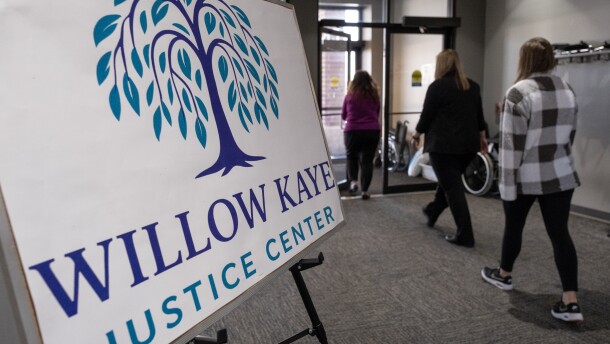Domestic violence-related homicides have increased steadily over the past 10 years in Ohio. Stark County is hoping a new justice center will help curb the rising problem.
Latest Headlines
Editors' Picks

Projected job growth, capital investment gains and expanded workforce initiatives across Northeast Ohio are highlighted in Team NEO's latest report. On the federal level, new tariffs take effect and affordability pressures persist.
-
The ban on ranked choice voting in Ohio has both a Republican and a Democratic sponsor, but the vote in both chambers has split largely along party lines.
-
The director of the Ohio Legislative Black Caucus Foundation said typically, less than half of registered Black voters cast ballots in midterms.
-
School officials say now is the time for families to choose their school for next year, but only 50% of those affected by the consolidation have signed up so far.
-
Rep. James Comer, Republican Chair of the Oversight Committee, joined Democrats in pledging to investigate the Justice Department for its handling of missing Epstein files related to President Trump.
-
In a call with top state voting officials, a Department of Homeland Security official stated unequivocally that immigration agents would not be patrolling polling places during this year's midterms.
-
The sports operations have requested a share of the $1 billion fund in the state budget, according to information obtained by the Statehouse News Bureau.
-
During a confirmation hearing, senators asked Dr. Casey Means about her current positions and her past statements on a range of public health issues.
-
At a Twinsburg City Council meeting Tuesday night, residents shared concerns about alleged police misconduct and the lack of records requests being filled by the city.
-
A prominent Black pastor's visits to CMSD schools are raising concerns about separation of church and state at a district struggling to address chronic absenteeism.





















